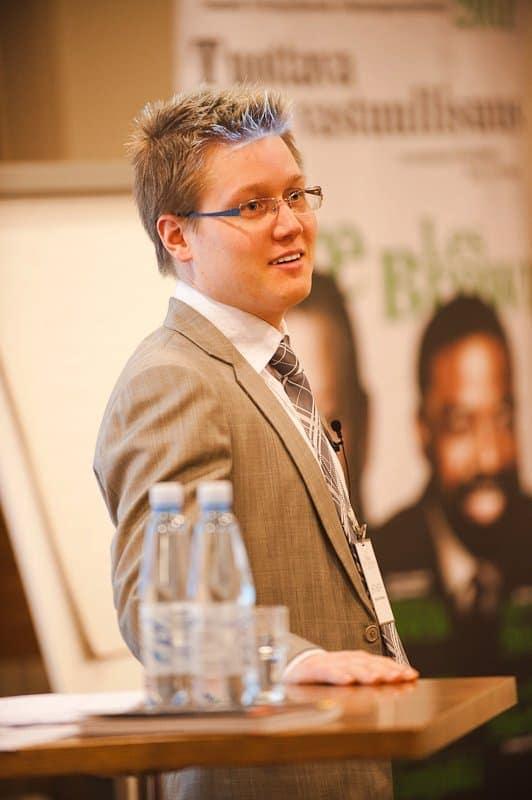25Apr2013
Executive coach Jarmo Manner wrote a blog post: Goal Excitement Destroys Success. The text was interesting, and it had a point. Yet I want to clarify a few things, which I think were misleading.
In his article, Jarmo points out the claim that goals bring results is a fairy tale. Jarmo is wrong. There are, of course, different kinds of research results out there, but here are just a few of them:
Professor Edwin A. Locke, a really appreciated psychologist and a pioneer in goal-setting theory, from the University of Maryland has processed a huge amount of research on goal setting. In his research, Goal Setting and Task Performance (1980), he points out that 99 of 110 studies found specific hard goals produced better performance than medium, easy, “do your best” or no goals.
On top of goal setting career planning also seems to be highly beneficial according to various studies. According to Lee (2001) career planning is positively related to professional enhancement and career satisfaction. A huge number of other researchers agree (e.g. Aryee & Yaw 1993; Wayne, Liden, Kraimer & Graf 1999). Gould (1979) found a strong connection between career planning and salary.
According to Locke the main mechanisms by which goals affect performance are by:
– directing attention,
– mobilizing effort,
– increasing persistence and
– motivating strategy development.
Goal setting is most likely to improve task performance when:
– The goals are specific and sufficiently challenging;
– The subjects have sufficient ability;
– Feedback is provided to show progress in relation to the goal;
– Rewards are given for goal attainment;
– The experimenter or manager is supportive;
– And the assigned goals are actually accepted by the individual.
One of the most important findings in Locke’s theory is that setting specific goals (e.g., I want to earn $500 more a month) generates higher levels of performance than setting general goals (e.g., I want to earn more money).
Realism in short term
Though Locke speaks about harder goals bringing better results than easy goals or no goals, he also states that the subjects must have sufficient ability to reach them. The goals must be sufficiently challenging BUT not too challenging. Nurmi & Salmela-Aro (2006) point out that it is important that you feel that you have the means to achieve the goals you set and that they are realistic and achievable.
There is a problem with this. I have found that many people overestimate what they can do in a year – and underestimate what they can achieve in a decade.
Goals have played an enormous role for my career and for a huge number of my friends. But not all kind of goals are beneficial. Continuous failure in achieving goals brings a bad feeling to the game.
You have to be realistic enough with your goals in short term, but please know that it is a good thing to dream big in long term! It will keep your receptors open for new ideas and opportunities that are in line with your vision.
Don’t hang too much on to your goals
I feel Jarmo’s good point in his text was that you should not be too fixed with your goals. Goals need to be reviewed regularly and you have to be ready to make changes in them. You will have to abandon certain goals and move on for others. Things change and so must you.
Another dangerous thing with goals is that some really goal-oriented people can’t appreciate things that are already well. Happy people are grateful. If you just think that “When I have earned a million, then I will be happy…”, you will loose a lot of important moments in your life. As Harvard Business School professor Tal Ben-Sharar (2007) puts it: “The proper role of goals is to liberate us to enjoy the here and now.”

 by:
by: 
